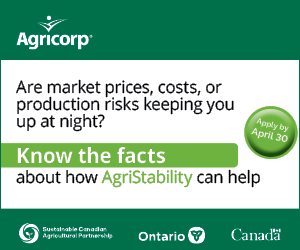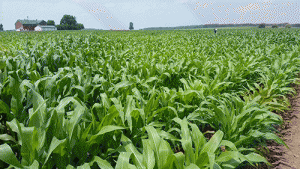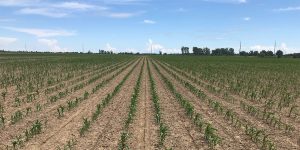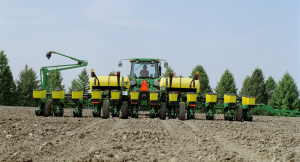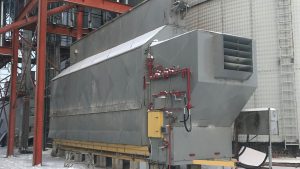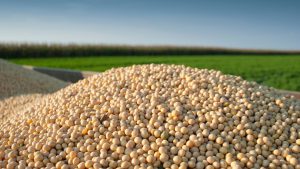Help wanted
OTTAWA IS IGNORING GRAIN FARMERS’ DIRE SITUATION
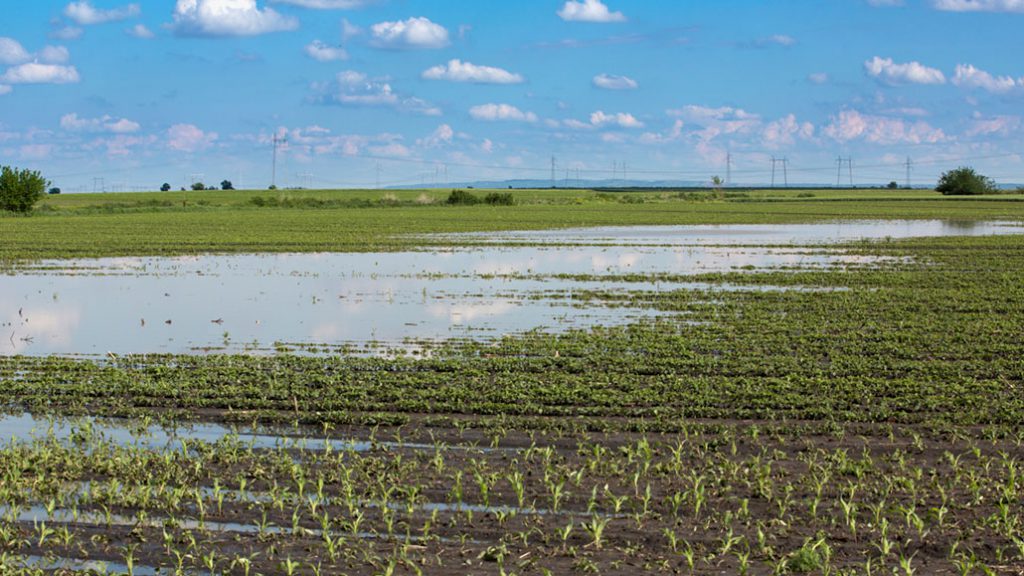
WHY IS OTTAWA turning its back on Ontario grain farmers?
That’s what 28,000 farmers are trying to understand this winter, as losses mount from a perfect storm that has devastated the grain sector in and off the field. Despite repeated pleas to create an effective business risk management (BRM) program and a federal fund to offer relief from a plethora of woes, such as U.S. subsidies and the ravages of a poor harvest, grain farmers say they have been ignored.
| WHAT YOU NEED TO KNOW • Several agricultural organizations have formed the AGgrowth Coalition to advocate for an effective national BRM suite of programs. • The coalition includes Grain Farmers of Ontario, the Canadian Federation of Agriculture, Canadian Canola Growers Association, Grain Growers of Canada, the National Sheep Network, and the Canadian Horticultural Council. • The coalition has stated that AgriStability provides no coverage to most farmers facing risks outside of their control and has asked for increased support in the face of mounting farm losses resulting from poor harvests due to weather and global trade issues. • The federal response to AGgrowth’s request has been underwhelming, with no commitment for improved programs. |
“Farmers are a national treasure,” says Deb Conlon, government relations manager for Grain Farmers of Ontario. “What does the federal government want, a country with farms owned by farmers, or by pension funds and corporations? It hasn’t responded to our calls, and the situation is getting worse all the time.”
Grain Farmers of Ontario is part of the drive for an effective, national BRM suite, led by what’s called the AGgrowth coalition. Besides Grain Farmers of Ontario, the coalition comprises the Canadian Federation of Agriculture, Canadian Canola Growers Association, Grain Growers of Canada, the National Sheep Network and the Canadian Horticultural Council.
In December, the coalition appealed to the Federal, Provincial and Territorial (FPT) Ministers of Agriculture to make meaningful changes to the current BRM suite. In a statement to the ministers, who were meeting in Ottawa, the coalition called the suite “broken” and said it is failing family farms that are facing increased risks from a changing climate and an uncertain trade environment.
The coalition singled out AgriStability, saying it was “gutted by politicians when times were good,” and now provides no coverage to most farmers facing risks outside of their control.
“The Government of Canada needs to stop playing at the margins of the assistance programs,” it says. “Farmers cannot wait any longer…global trade uncertainty and volatile weather is impacting every single farmer across the country this year, leaving farmers without product to sell and prices that don’t cover the cost of production.”
Grain Farmers of Ontario says farmers are becoming increasingly concerned that the government is not taking the situation seriously. It echoed its disdain for AgriStability, saying it was “table stakes” compared to the billions the U.S. treasury has provided its farmers.
Unfortunately, the only federal action resulting from that appeal was the ministers’ commitment to review the BRM suite. And that dampened spirits even more. Grain Farmers of Ontario said farmers were disillusioned by this lack of action, particularly considering that supply managed farmers were promised support prior to last fall’s federal election (which they subsequently received) to compensate them for potential losses resulting from trade concessions with Europe.
“Non supply-managed farms have been the hardest hit by worldwide trade wars and depressed prices, yet the Ministers of Agriculture announced money for supply managed farmers, but only consultations for the rest of us,” says Markus Haerle, chair, Grain Farmers of Ontario. “Supply managed farmers have not even experienced the hurt, and they have already received a cheque from the federal government. Our farmer-members are incurring sustained losses and the only promise they have is more meetings.”
So why the muted response? Well, some observers believe it’s because of the overwhelming complexity, breadth, and flurry of problems facing Ontario grain farmers.
CHALLENGING CIRCUMSTANCES
First, farmers headed into 2019 already in a difficult position. A particularly wet harvest from the previous fall plagued the corn crop with abnormally high levels of the mycotoxin deoxynivalenol (DON). That meant many producers were faced with a downgraded crop that in some cases was worth a fraction of what a healthy harvest would return.
At about the same time, U.S. President Donald Trump launched a trade war with China, trapping Canada in the middle. Trump anticipated retaliatory tariffs from China against U.S. agricultural exports, so he dipped deep into the U.S. treasury and provided U.S. $28 billion to farmers there. Such support allowed U.S. grain farmers to sell more cheaply into the world market, costing Canada customers.
It also sent global prices plummeting, without harming American farmers’ income.
To make matters worse, besides battling Trump, Ontario grain farmers were fighting Mother Nature. The province faced unprecedented rainfall during planting, followed by an untimely frost in many areas, capped off with snow-covered fields at harvest. Grain quality suffered. Farmers needed to dry their crops, but a rail strike prevented some from getting propane for their dryers.
All this contributed to a perfect storm…and it continues to reverberate.
“Global trade uncertainty and volatile weather is impacting every farmer across Canada this year, leaving farmers without product to sell and prices that don’t cover the cost of production,” says the AGgrowth Coalition. “Farmers are not only unable to make a profit; they are losing money on crops they have grown, due to the depressed prices created by the China-U.S. trade war.”
ECONOMIC IMPACTS
The ripple effect is everywhere. In October, Association of Equipment Manufacturers (AEM) senior vice-president of agricultural services, Curt Blades, noted that as farmers began the delayed harvest, weather uncertainty and outstanding trade negotiations “were weighing heavily on their minds.” He watched as farm equipment sales in Canada were scorched. Four-wheel-drive tractors led the decline, with sales down 35 per cent. Self-propelled combine sales fell nearly 20 per cent.
Meanwhile, sales in the U.S. were buoyed by the Trump subsidies; AEM described them as normal.
And unfortunately, there’s no end in sight. Canadian farm net income dropped an average of 45 per cent in 2018. Ontario, where income fell 60 per cent, was the second hardest hit in the country. Ontario grain farmers have suffered an estimated $25 – $65 per acre loss as a result.
This dismal situation, coupled with the lack of support, is taking a toll on farmers’ mental health. The AGgrowth coalition says mental health lines in six regions across Canada, including Ontario, are reporting up to 80 per cent more activity than previous years.
Early last year, Grain Farmers of Ontario started calling for a federally supported Trade War Fund. The organization said the fund is needed “for grain and oilseed farmers suffering from global trade disputes and competition with U.S. and Canadian supply-managed farmers, who are receiving government bailouts.”
However, Ottawa has not responded. And farmers can’t figure out why.
Says Grain Farmers of Ontario’s Conlon: “Ontario farmers are a casualty of the trade war, with operational costs up, farm foreclosures growing, and lower quality and smaller yields everywhere, from a difficult growing season. Why won’t the government help?” •


